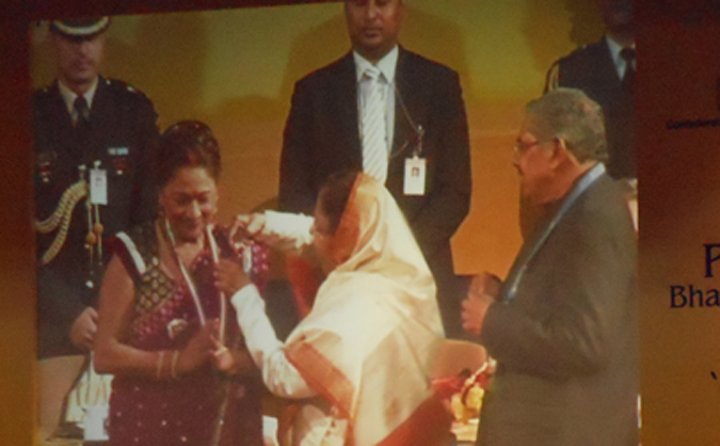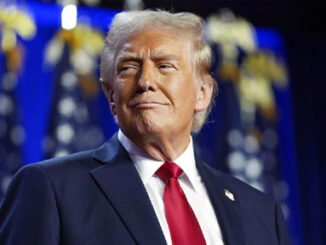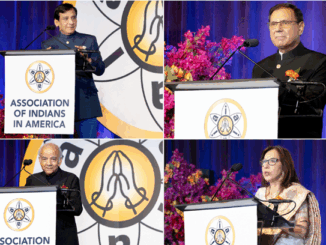
- By Prof. Indrajit Saluja
New York is once again the arena of world diplomacy, with the 80th United Nations General Assembly drawing presidents, prime ministers, and kings from every corner of the globe. Among them this year is Prime Minister Kamla Persaud Bissessar of Trinidad and Tobago. On September 27, the Consulate of Trinidad and Tobago will host a reception in her honor, and I feel especially privileged to be among those invited. For me, this is not just another diplomatic occasion. It is personal, filled with memories of earlier encounters with a leader whose journey I have watched with admiration for more than a decade.
My First Encounter: 2010 in New York
The first time I welcomed her to this city was in 2010, just months after she had been sworn in as the first woman Prime Minister of Trinidad and Tobago. The Indo-Caribbean community here turned out in force. There was music, dancing, flags waved proudly, and the energy of a people celebrating a historic achievement.
I was there that day, and I recall the emotion clearly. It was not only the joy of Trinidadians and Tobagonians at seeing one of their own ascend to leadership; it was also the pride of the Indian diaspora worldwide. A daughter of indentured laborers’ descendants had risen to the summit of power in a sovereign state. When I had the privilege of meeting her, I found her warm and gracious, with a quiet confidence that suggested she was ready for the enormous responsibility history had placed upon her shoulders.
Honored in the Land of Her Ancestors

Two years later, I met her again, this time in India at the 2012 Pravasi Bharatiya Divas in Jaipur. There she was honored with the Pravasi Bharatiya Samman, the highest award given by the Government of India to members of the diaspora.
The symbolism was profound. She stood on Indian soil as a head of government, representing a Caribbean nation, yet embodying the resilience of those who had left that same soil in bondage generations earlier. Her speech that day fused pride in her Indian heritage with an unshakable devotion to Trinidad and Tobago. It was a reminder of how the diaspora, far from being rootless, carries with it a living heritage that enriches every land it touches.
From Siparia to State House
Prime Minister Bissessar’s biography is as inspiring as it is improbable. Born in Siparia in 1952, she grew up in modest circumstances, yet excelled academically. She studied at the University of the West Indies, trained as a lawyer at Hugh Wooding Law School, and pursued further studies abroad. She entered politics with the United National Congress, rising steadily to serve as Attorney General, Minister of Education, and finally, in 2010, as Prime Minister.
Her years in office were marked by investments in education, social development, and infrastructure. In the turbulent and competitive world of Caribbean politics, her leadership was sometimes contested, but her historic significance is unchallenged. She was the first woman to lead her nation, and the first woman of Indian descent to serve as head of government in the entire Western Hemisphere. That distinction alone secures her place in history.
Part of a Global Story
In many ways, Kamla Persaud – Bissessar’s story is part of a larger global narrative: the ascent of diaspora-origin leaders who are reshaping the politics of their adopted homelands. In recent years, we have seen Kamala Harris, the first woman Vice President of the United States, proudly acknowledge her Indian and Caribbean roots. Rishi Sunak became the first British Prime Minister of Indian descent, while António Costa leads Portugal with equal pride in his Goan heritage. Across the world, diaspora-origin leaders are demonstrating that heritage is not a limitation but a source of strength.
Prime Minister Bissessar stands tall among them. Long before Kamala Harris took her oath of office in Washington, before Sunak entered 10 Downing Street, Bissessar had already made history in Port of Spain. She showed that a woman of Indian origin could command the confidence of a diverse electorate and guide the destiny of a modern nation. She was, in many ways, a trailblazer for this new era of diaspora leadership.
A Symbol of Resilience and Representation
For me, her leadership represents the triumph of the Indo-Caribbean story. When the first ships brought indentured laborers from India to Trinidad in 1845, no one could have imagined their descendants would one day lead the nation. Theirs was a life of hardship, cut off from their homeland, toiling in plantations under difficult conditions. Yet they preserved their culture, their faith, and their dignity.
Prime Minister Bissessar is the flowering of that resilience. Her story tells us that the sacrifices of those ancestors were not in vain. It tells us that heritage, when combined with opportunity, can produce leaders of global significance.
She is also a beacon for women worldwide. Leadership remains a male-dominated arena, and women who enter it often face prejudice and resistance. Bissessar’s rise, therefore, was not merely personal—it was symbolic. She proved to young girls in Trinidad, in India, and everywhere else that they too could aspire to the highest office.
Welcoming Her Once Again
Now, in 2025, as she comes once again to New York, I feel a sense of continuity. I was there when she first came in 2010, buoyed by fresh victory. I was there in India when she was honored as a daughter of the diaspora in 2012. And I will be there again this week, to greet her as a seasoned leader, her legacy already secure, her place in history already written.
The reception on September 27 will surely echo with pride, laughter, and music. But for me it will be more than a celebration—it will be a reflection on the extraordinary journey of a woman who has connected continents, bridged cultures, and embodied the resilience of her people.
I confess to a personal pride in her story. I see in her rise a reflection of our own diaspora’s struggles and triumphs. I see the perseverance of ancestors who left India with nothing but courage and faith. I see the dignity of women who refused to be confined by tradition or prejudice. And I see the future of diaspora communities across the world, who now know that leadership at the highest levels is within their reach.
As she steps into this week of diplomacy and dialogue, I offer her my warmest welcome and my heartfelt wishes. May her engagements be successful, may her leadership continue to inspire, and may her journey remind us all of what is possible when heritage and history combine with vision and courage.
Prime Minister Kamla Persad Bissessar is not just a leader of her nation. She is part of a global chorus of diaspora voices now shaping the world. She was among the first to show that it could be done. And for that, as I prepare to greet her once more in New York, I say with pride: welcome back, Madam Prime Minister.





Be the first to comment